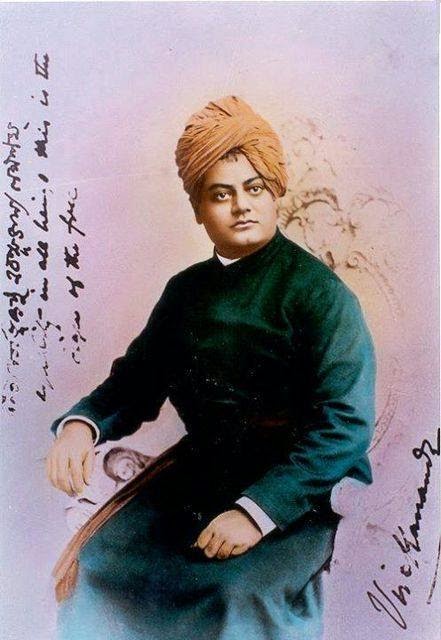VEDIC RELIGIOUS IDEALS : 4.
It was written, nobody knows at what date, it may be 8,000 years ago, in spite of all modern scholars may say, it may be 9,000 years ago. Not one of these religious speculations is of modern date, but they are as fresh today as they were when they were written, or rather, fresher, for at that distant date man was not so civilised as we know him now. He had not learnt to cut his brother's throat because he differed a little in thought from himself; he had not deluged the world in blood, he did not become demon to his own brother. In the name of humanity he did not massacre whole lots of mankind then. Therefore these words come to us today very fresh, as great stimulating, life-giving words, much fresher than they were when they were written: "That which exists is One; sages call It by various names." We have to learn yet that all religions, under whatever name they may be called, either Hindu, Buddhist, Mohammedan, or Christian, have the same God, and he who derides any one of these derides his own God.
That was the solution they arrived at. But, as I have said, this ancient monotheistic idea did not satisfy the Hindu mind. It did not go far enough, it did not explain the visible world: a ruler of the world does not explain the world — certainly not. A ruler of the universe does not explain the universe, and much less an external ruler, one outside of it. He may be a moral guide, the greatest power in the universe, but that is no explanation of the universe; and the first question that we find now arising, assuming proportions, is the question about the universe: "Whence did it come?" "How did it come?" "How does it exist?" Various hymns are to be found on this question struggling forward to assume form, and nowhere do we find it so poetically, so wonderfully expressed as in the following hymn:
"Then there was neither aught nor naught, nor air, nor sky, nor anything. What covered all? Where rested all? Then death was not, nor deathlessness, nor change to night and day." The translation loses a good deal of the poetical beauty. "Then death was not, nor deathlessness, nor change to night and day;" the very sound of the Sanskrit is musical. "That existed, that breath, covering as it were, that God's existence; but it did not begin to move." It is good to remember this one idea that it existed motionless, because we shall find how this idea sprouts up afterwards in the cosmology, how according to the Hindu metaphysics and philosophy, this whole universe is a mass of vibrations, as it were, motions; and there are periods when this whole mass of motions subsides and becomes finer and finer, remaining in that state for some time. That is the state described in this hymn. It existed unmoved, without vibration, and when this creation began, this began to vibrate and all this creation came out of it, that one breath, calm, self-sustained, naught else beyond it.
Swami Vivekananda
To be continued ...




Comments
Post a Comment